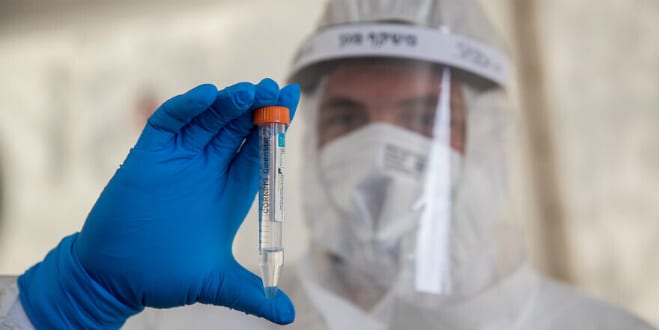The shortage of equipment for performing tests to detect the virus that causes COVID-19 and the relatively long time that it takes to provide the answers have hindered worldwide efforts to identify those who are infected and to isolate and treat them, as well as to determine who is healthy.
Prof. Naama Geva-Zatorsky from the Ruth and Bruce Rappaport Faculty of Medicine at Technion-Israel Institute of Technology in Haifa, together with her research team are currently developing a simple home test that could – within an hour – diagnose the SARS-CoV-2 virus that causes the potentially fatal disease.
Partners in developing this innovative test include members of the Geva-Zatorsky lab, Dr. Moran Szwarcwort-Cohen, virology laboratory head at Rambam Medical Center in Haifa; Prof. Mical Paul, Rambam’s infectious diseases unit head; and Prof. Michal Chowers, infectious diseases unit head at Meir Medical Center in Kfar Saba.
Further development can lead to using this method as mass testing kit in the workplace, points of care, and households. According to Geva-Zatorsky, “We developed a protocol for a test that requires only a saliva sample, reagents, and a thermal cup. The new test’s reliability was measured using 200 biological samples from confirmed coronavirus patients and patients suspected of infection with the virus.”
The samples were supplied by Rambam’s coronavirus biobank. One only needs to immerse the saliva sample in a test tube that contains the reactive material and then in the thermal cup with hot water. If the color of the reaction changes, that indicates the presence of the coronavirus. The result is obtained within an hour and does not require lab analysis. This test is not designed to replace the current conventional method.”
“We are now completing the experiments in order to improve sensitivity to the presence of the virus, even in low concentrations,” Geva-Zatorsky added, “We have found that, when tested on standard swabs, in medium and high concentrations of the virus, the test identifies 99% of the cases, but in low concentrations a second test is necessary a few days later. Once we receive Health Ministry approval, the kit can be widely distributed. We see this test as suitable for use at entrances to hospitals, workplaces, nursing homes, airports and in drive-through testing facilities.”
“The current protocol was validated on standard swabs. As a proof of concept, we successfully detected the virus in saliva samples, and are now validating it on a larger cohort of saliva samples. The new test will primarily increase the scale of testing in the community and will enable the population to be surveyed faster and on a much wider scale,” said Chowers. “The most significant innovation is that the test can be carried out on site, within an hour, eliminating the need to send the saliva to a special lab.”
The bank of coronavirus samples was recently set up at Rambam’s biobank, which was established in 2014 as part of the Israeli Biorepository Network for Research. Rambam immediately realized the vital need for a bank of biological samples from coronavirus patients for research purposes and established in record time Israel’s first coronavirus biobank, containing blood tests and respiratory tract samples.
“The coronavirus biobank consists of samples collected from our patients, not only for diagnosis and verification but also for research purposes,” noted Dr. Shlomit Yehudai-Reshef, clinical research institute director at Rambam. Dr. Danny Eytan, a senior physician in Rambam’s pediatric intensive care unit and a member of the Rappaport Faculty of Medicine added, “Each sample includes clinical data – detailed information about the patient’s medical history before and during infection with coronavirus. This data provides an important tool for decision-making and resource allocation.”
Source: Israel in the News

